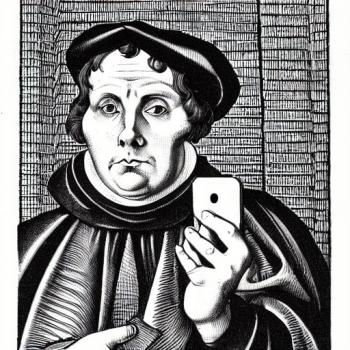Thousands of refugees from Syria–as well as Iran, Afghanistan, and other Islamic countries–have been pouring into Europe, creating big problems and provoking all kinds of controversy. But many of these Islamic refugees have been converting to Christianity.
Some Europeans are skeptical, thinking the conversions are simply a facade to get asylum. Religious beliefs aren’t supposed to be factors in immigration decisions, but a Muslim who converts to Christianity can make a good claim that deportation would mean a death sentence. But taking that step, for a Muslim–publicly renouncing Islam and becoming Baptized in the name of the Father, Son, and Holy Spirit–would surely be existentially difficult unless it is sincere.
And 90% of the newly baptized keep coming to church, unlike much of the nominally Christian populations. Perhaps this will be a way of revitalizing European Christianity! After the jump, an Associated Press story on the subject.
UPDATE: The “priest” Gottfried Martens referred to in the article is actually a pastor in the SELK church, a confessional denomination unaffiliated with the state church that is in fellowship with the Lutheran Church Missouri Synod. Thanks to commenter Bror Erickson for that information. And to sapling_Alex for pointing out that these Lutherans are taking the lead in refugee evangelism. I would also add a reminder to the discussion about immigration that “Islam” is not a race but a religion, so that when Muslims convert to Christianity they are no longer Muslims.
From Kirsten Grieshaber, At a Berlin church, Muslim refugees converting in droees, Associated Press:
Mohammed Ali Zonoobi bends his head as the priest pours holy water over his black hair. “Will you break away from Satan and his evil deeds?” pastor Gottfried Martens asks the Iranian refugee. “Will you break away from Islam?”
“Yes,” Zonoobi fervently replies. Spreading his hands in blessing, Martens then baptizes the man “in the name of the Father, the Son and the Holy Ghost.”
Mohammed is now Martin — no longer Muslim, but Christian.
Zonoobi, a carpenter from the Iranian city of Shiraz, arrived in Germany with his wife and two children five months ago. He is one of hundreds of mostly Iranian and Afghan asylum seekers who have converted to Christianity at the evangelical Trinity Church in a leafy Berlin neighborhood.
Like Zonoobi, most say true belief prompted their embrace of Christianity. But there’s no overlooking the fact that the decision will also greatly boost their chances of winning asylum by allowing them to claim they would face persecution if sent home.
Martens recognizes that some convert in order to improve their chances of staying in Germany — but for the pastor motivation is unimportant. Many, he said, are so taken by the Christian message that it changes their lives. And he estimates that only about 10 percent of converts do not return to church after christening.
“I know there are — again and again — people coming here because they have some kind of hope regarding their asylum,” Martens said. “I am inviting them to join us because I know that whoever comes here will not be left unchanged.”
Being Christian alone does not help an applicant, and Chancellor Angela Merkel went out of her way this week to reiterate that Islam “belongs in Germany.” But in Afghanistan and Iran, for example, conversion to Christianity by a Muslim could be punished by death or imprisonment, and it is therefore unlikely that Germany would deport converted Iranian and Afghan refugees back home. . . .
Other Christian communities across Germany, among them Lutheran churches in Hannover and the Rhineland, have also reported growing numbers of Iranians converting to Christendom. There are no exact numbers on how many Muslims have converted in Germany in recent years — and they are a tiny minority compared to the country’s overall 4 million Muslims. But at least for Berlin, Martens describes the number of conversions as nothing short of a “miracle.” And he says he has at least another 80 people — mostly refugees from Iran and a few Afghans — waiting to be baptized.
[Keep reading. . .]














